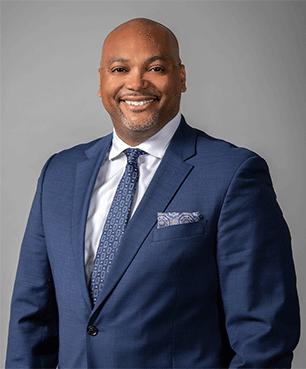Ohio residents are gearing up to vote on whether or not to legalize Issue 2 – a voter-initiated law “To Commercialize, Regulate, Legalize and Tax the Adult Use of Cannabis.”
A simple majority vote would permit Ohio individuals who are over the age of 21 to grow up to six plants and possess up to 2.5 ounces of cannabis, establish operational licensing through the newly-created Commerce Department Division of Cannabis Control and create a 10% adult-use tax on top of regular sales tax. The proceeds of the tax will be disbursed to local governments, a social equity and jobs fund and the Division, according to a statement from Lloyd Pierre-Louis, a member of the Cannabis Practice Group at Dickinson Wright PLLC and cannabis operator licensing advisor.
Adult-Use Cannabis Will Boost the Local Economies

If voters approve, Ohio could be the third state to legalize recreational cannabis in 2023, following in the footsteps of Delaware and Minnesota. In a conversation with Cannabis Regulator, Pierre-Louis also explains that an approval will significantly boost the local economy in the state.
“Most of the participants in the medical marijuana industry are employing at least a dozen or more Ohio residents, they’re using services in local communities and they’re buying supplies from local communities. Also, within this statute, there’s a 10% adult-use tax that will be added on top of the regular sales tax that is charged to every other good sold. So there will be some additional boost to local economies and governments. And to me, that is a positive,” Pierre-Louis says.
When Will Adult-Use Licenses Be Given Out?
If passed, the Division would be required to make initial applications to adult-use operators available within six months of the law’s effective date, which is December 7. Within nine months of the law’s effective date, the Division will issue adult-use licenses to cultivate, process, sell and test marijuana for recreational use by adults over 21.
“Under the new law, there would be some preference given to operators who are licensed in the current medical marijuana program,” Pierre-Louis notes. “Those who are already operating would have the opportunity to apply for adult-use licenses, which would then be subject to approval within nine months.”
Pierre-Louis also mentions that after the currently operating medical marijuana businesses apply for adult-use licenses, there would then be another opportunity for other participants to be able to apply for different types of licenses. This may not happen immediately, but as the program gains more momentum, more Ohio residents would have the chance at applying.
The proposed law includes some of the same limitations appearing in the Ohio Medical Marijuana Act. For example:
- Licensed locations cannot be within 500 feet of protected uses (i.e., a school, church, etc.)
- An individual owner cannot have a concurrent interest in a testing lab and another type of operator
- All owners and employees must be at least 21 years old
- Certain criminal convictions will disqualify individuals from holding a license
- Employers may enforce any drug testing policy
- Local governments may limit or prohibit operators within their jurisdictional borders
How to Prepare for Adult-Use Applications
Pierre-Louis suggests some ways in which existing medical marijuana operators can prepare for adult-use licenses, if the law passes:
- Start Looking at Property. Under the proposed statute, an existing medical marijuana licensee would be able to operate an adult-use dispensary at the same location. But there are other opportunities for both dispensaries and those holding cultivation licenses to become licensed at other locations.
- Examine Your Current Lease. If medical marijuana businesses are operating under a lease, some uses are limited to only medical marijuana. So it would be wise to re-examine what the permitted uses are on the current property.
- Participate in Local Government Meetings. Early and frequent contact with municipal and state officials is one proven way to avoid surprises, so be sure to seek out opportunities to participate in rulemaking and actively offer comments to local government officials for potential locations.
When asked about how excited his clients are about the possible legalization of adult-use marijuana, Pierre-Louis says there’s definitely a buzz going around. “I think they see it as a positive and as a way to access those individuals who may not have been able to access cannabis through the medical marijuana program. Costs may also come down, and folks who would not have gone into a medical marijuana dispensary will be able to get the medicine they need.”










